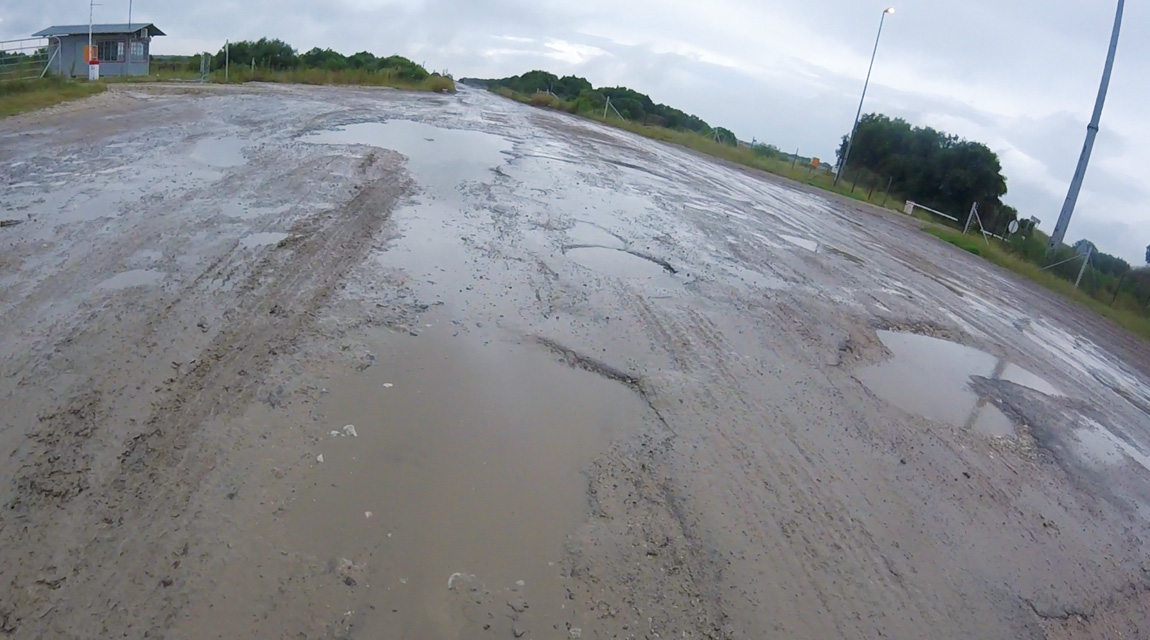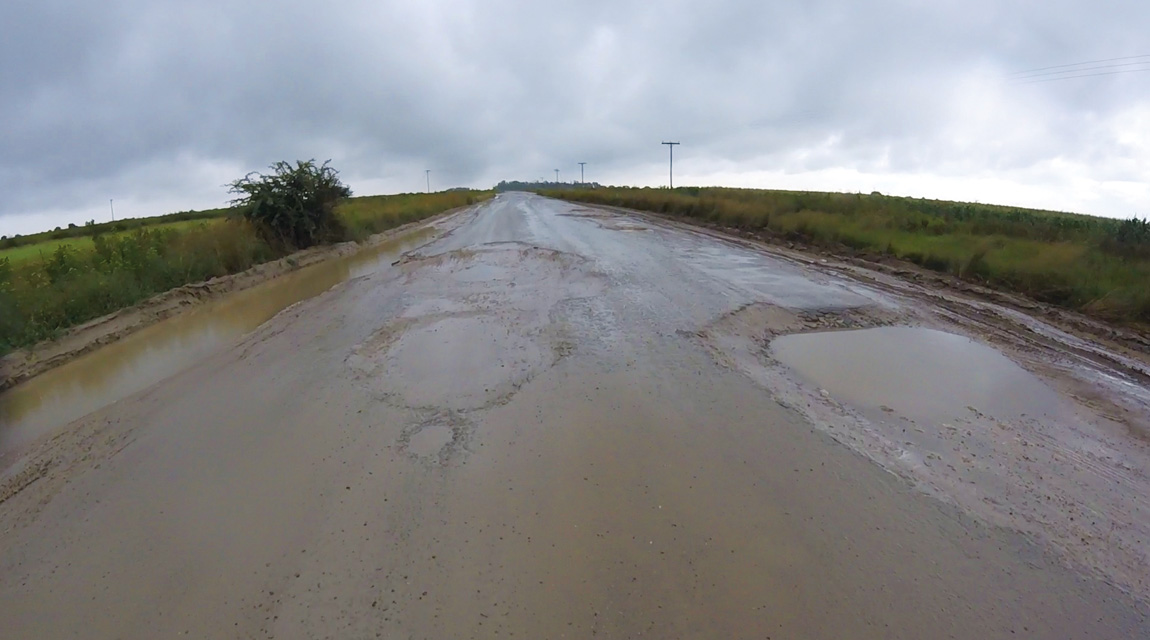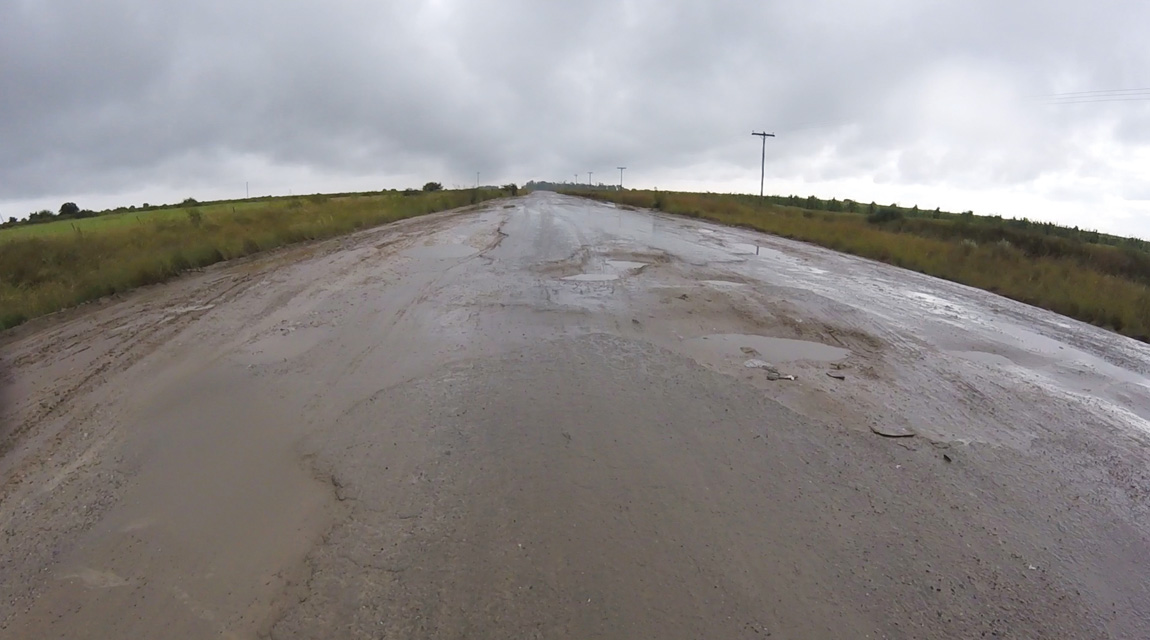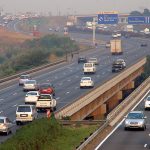The snowball effect of deteriorating infrastructure

Forget South Africa’s world-class N3 and other national routes for the moment, because a dire situation has developed with some of the country’s regional routes – and it’s affecting many of the transporters who run them.
I recently met with a prominent operator and industry consultants (who, for now at least, wish to remain anonymous). They alerted me to the frightening situation in the regions of Koster, Rustenburg, Lichtenburg, Kroonstad, Klerksdorp and Middelburg – to name a few. The roads in these areas have been left to go to wrack and ruin and it’s causing havoc for the local communities and the transporters who service contracts in those regions.
“The potholes littering those roads are so bad you need a stick and tape measure to see how deep they are. You can’t try avoid them, because there are too many. The authorities are aware of the situation, but leave the repairs to unscrupulous contractors, who – when they do perform repairs – don’t do so to any proper standard. Besides, most of the roads are so far gone they either have to be broken up to gravel (the quickest and cheapest option) or rebuilt altogether,” I’m told.
Even though 20 km/h is just about the maximum speed drivers can manage on these roads, they and their vehicles take a hammering – with sometimes unfathomable consequences.
“Some roads were tarred, but they have degraded to such an extent that it’s impossible to tell that this was once the case. The vibrations on the vehicles damage the tyres and running gear, crack the chassis and suspension and do the same on the trailers.”
It’s hell on the drivers, too, who complain about back problems and even refuse to drive certain routes. “This means we have to reroute the vehicle and carry the cost of extra kilometres. One part of our fleet picks up 16 loads every day to bring to Johannesburg. You can imagine what the drivers feel like at the end of the week, so their reluctance is understandable.”
It is, I’m told, entirely feasible for a vehicle to enter the areas in question in a roadworthy condition and come back unroadworthy… “Every time we drive these roads, the vehicles suffer damage. We spend thousands more than normal on repairs to each rig every month; it’s not sustainable.”
Of course, there are only so many times you can repair a vehicle (metal weakens every time you weld it, for example) and one also needs to remember that, just because the vehicle has successfully navigated the roads in question, it could already be damaged, and failure could still occur hundreds of kilometres away.

“If the truck suffers a failure and has an accident on a busy road, the lives of both the driver and innocent road users are at risk. It’s the operator that is then unfairly called out for poor maintenance. It gets to a point where operators are better off not running those routes.”
This, of course, has far-reaching implications – not only for the operator, but also the local communities. With a dire lack of rail transport and failing road infrastructure making it difficult to get their goods to market, many industries are moving out of these regions.
“Job opportunities have disappeared and the poverty levels in these areas are sky high. The people in those communities don’t have the means to move; they are trapped, yet they can’t feed their kids because there are no jobs.
“The only way to create jobs for them is to get businesses to re-establish themselves in those areas and grow the economy … but that cannot be done if the road infrastructure is left to fall apart. We are running into a disaster and we hope the government will be made to take notice.”
For the few industries that remain, there is a very real risk that they face the same fate. The operator explains the snowball effect: “When purchasing a vehicle, you have to evaluate the costs over a certain period of time and work out the cost per kilometre, in order to prepare quotes for your customers. It is hard to do this on these routes, because of all the repairs and premature vehicle replacements.

“Transport costs become too high, so prices of goods have to be increased. If these costs are passed on to the end user, sales decline because the product becomes too expensive. The customer then moves to a cheaper operator, but eventually no one wants to transport his goods and he has to close his factory, because he cannot move his product to the end user.”
The transporters that remain continue to walk a tightrope, too. One would assume that the larger companies, like our source here, would be better able to absorb the impact (so to speak); but even this company cannot easily redeploy vehicles, give drivers other jobs, or find replacement contracts.
“Our drivers, employees and businesses are put at risk. Ensuring the health of these drivers places additional strain on our business and, even though each vehicle is checked from bumper to bumper and repaired as soon as it comes back into the depot (as a precaution, drivers even check them before heading back), no one wants to buy them when it comes time to replace them.”
It’s a dire situation that holds huge, sometimes life-threatening consequences for many operators. It threatens the existence of many industries and plunges already struggling communities into a deeper pit of despair. Worse still, it seems unlikely that the situation will be improved any time soon.
Perhaps, if more operators and industry partners voice their concerns, there may be a chance. If you have any thoughts on the matter, we’d love to hear from you.
Published by
Focus on Transport
One Comment
Leave a comment Cancel reply
focusmagsa





Its inconceivable that operators are not prepared to be named when talking about such critical issues. In SA, we have become frightened of telling the truth! The road transport industry desperately needs a regular top-level interface with the Department of Transport to bring these matters, and their inevitable impacts on safety and economics, to government’s attention. Road transport is vital to the functioning of the SA economy, and its about time that this reality is recognised at top level.